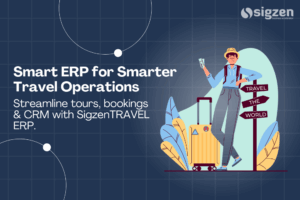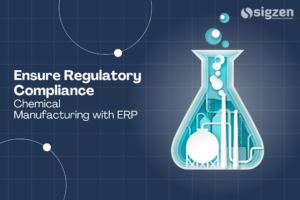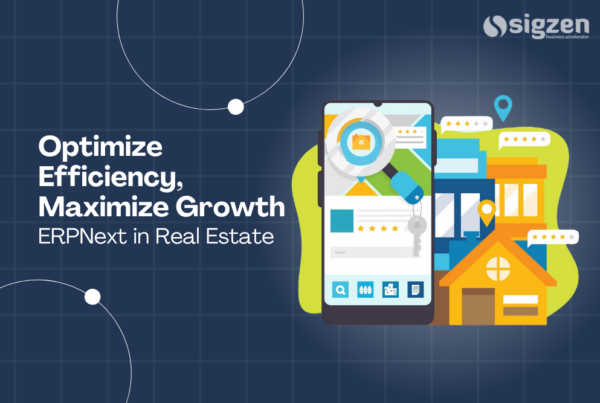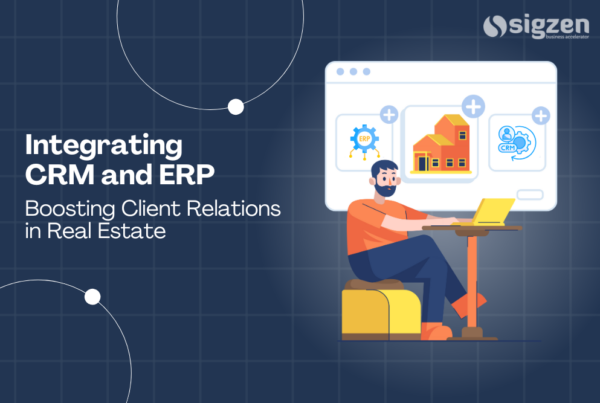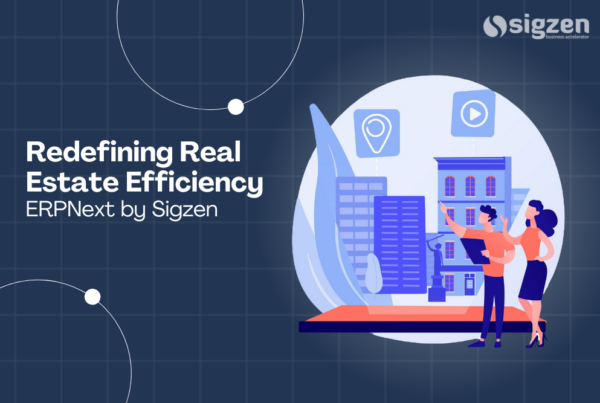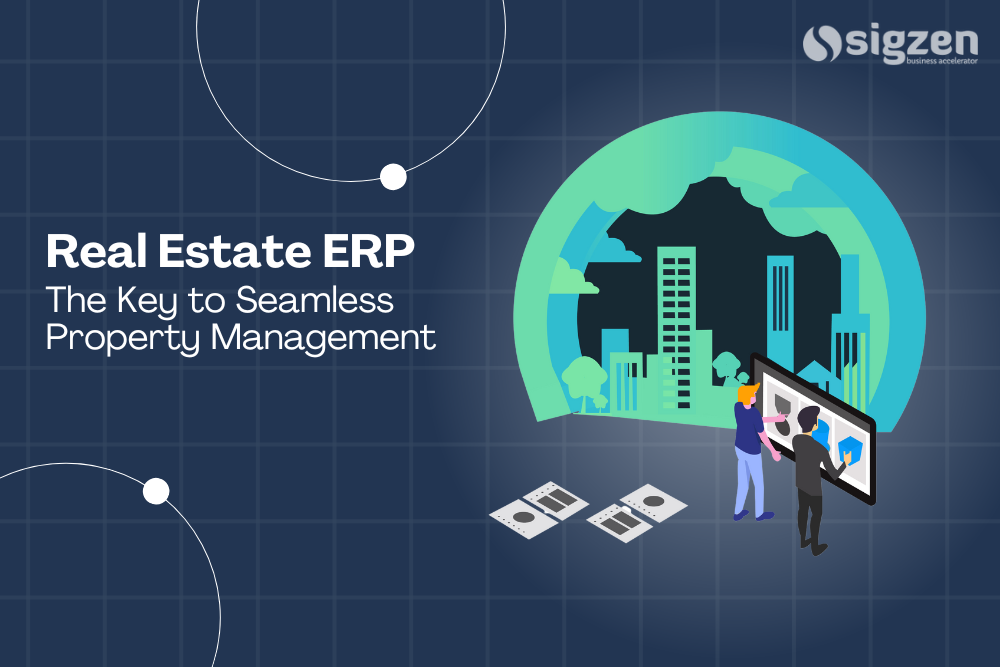
Introduction: The Evolution of Real Estate Management with ERP
Managing properties, assets, and services in the real estate industry is complex and demanding. Real estate professionals must balance property upkeep, tenant satisfaction, compliance, and profitability while grappling with fragmented data and outdated processes. This is where ERP for Real Estate becomes indispensable.
ERP (Enterprise Resource Planning) systems provide an integrated approach to managing all aspects of real estate operations, from asset tracking and maintenance to tenant relations and financial management. In this article, we’ll explore how implementing ERP software revolutionizes property management, improves operational efficiency, and ensures long-term growth.
Challenges in Real Estate Property Management
1. Inefficient Data Management
Property managers often juggle multiple software tools for lease agreements, maintenance schedules, and financial records, leading to data silos and inaccuracies.
2. Asset Maintenance Issues
Tracking the lifecycle of physical assets, such as HVAC systems, elevators, and parking facilities, becomes challenging without a centralized system.
3. Compliance and Regulatory Requirements
Real estate businesses must adhere to local, national, and international regulations, making compliance documentation and audits time-consuming.
4. Tenant and Stakeholder Coordination
Managing tenant requests, payments, and contracts manually increases the risk of errors and delays, impacting satisfaction and trust.
How ERP for Real Estate Addresses These Challenges
1. Centralized Data Management
ERP systems consolidate all property-related information into a single platform, enabling real-time access and seamless collaboration. Features include:
- Unified Dashboards: Offer a comprehensive view of property performance.
- Data Accuracy: Eliminate manual data entry errors with automated updates.
- Cross-Department Collaboration: Allow teams to work cohesively, reducing redundancies.
Discover Sigzen Estate for streamlined real estate management.
2. Optimized Asset Management for Real Estate
Assets form the backbone of any real estate business. An ERP system ensures efficient asset management for real estate by:
- Tracking Asset Lifecycles: Monitor acquisition, usage, and maintenance schedules.
- Preventive Maintenance: Schedule regular maintenance to avoid costly repairs.
- Depreciation Management: Automate calculations for accurate financial reporting.
Explore ERPNext’s asset management capabilities here.
3. Compliance Management
Compliance becomes straightforward with real estate ERP software, thanks to features like:
- Document Storage: Digitally store and retrieve legal documents, permits, and agreements.
- Audit Trails: Maintain detailed logs of all transactions and updates for regulatory audits.
- Compliance Alerts: Set reminders for license renewals, inspections, and tax submissions.
4. Enhanced Tenant and Stakeholder Relations
An integrated CRM module within ERP systems improves tenant communication and satisfaction:
- Tenant Portals: Allow tenants to log requests, view lease details, and make payments online.
- Automated Notifications: Send timely updates on rent due dates, policy changes, or maintenance schedules.
- Feedback Tracking: Record and analyze tenant feedback to improve services.
Key Features of Real Estate ERP Software
1. Lease and Contract Management
Manage lease agreements, renewals, and terminations efficiently, reducing the risk of missed deadlines.
2. Maintenance Scheduling
Plan and execute property maintenance activities proactively to enhance asset longevity.
3. Financial Management
Automate rent collection, expense tracking, and financial reporting for better cash flow management.
4. Reporting and Analytics
Generate real-time reports to track property performance, tenant occupancy rates, and revenue streams.
5. Mobile Accessibility
Access ERP features on the go, ensuring property managers and teams stay connected wherever they are.
Benefits of Implementing ERP for Real Estate
1. Improved Operational Efficiency
- Streamlining processes such as lease management, billing, and asset tracking reduces administrative burdens.
2. Cost Savings
- ERP software minimizes waste, reduces manual errors, and optimizes resource allocation, leading to significant cost savings.
3. Better Decision-Making
- Access to real-time data and analytics empowers property managers to make informed decisions quickly.
4. Enhanced Tenant Satisfaction
- From faster response times to personalized services, ERP systems improve tenant experiences and retention.
5. Scalability
- ERP solutions grow with your business, accommodating new properties, tenants, and stakeholders effortlessly.
Real-World Impact: A Case Study
Challenge: A mid-sized real estate firm struggled with fragmented data, manual rent collection, and tenant dissatisfaction.
Solution: By implementing Sigzen Estate, the firm achieved:
- A 40% reduction in administrative workloads through automated lease management.
- A 30% improvement in tenant satisfaction with self-service portals.
- Enhanced financial visibility with real-time reporting and analytics.
Learn more about Sigzen Estate’s transformative capabilities here.
How Real Estate ERP Benefits Service Providers
For ERP for service providers in real estate, the software delivers additional advantages, such as:
- Vendor Management: Track vendor performance, contracts, and payments.
- Task Automation: Automate routine tasks like invoicing and scheduling inspections.
- Performance Analytics: Monitor service quality and costs to improve vendor relationships.
Explore ERP solutions for service providers on Sigzen.
Choosing the Right Real Estate ERP Software
When selecting real estate ERP software, consider the following:
- Customization: Ensure the system supports your specific business needs, such as multi-location property management.
- Integration: Look for software that integrates seamlessly with existing tools like accounting or CRM systems.
- User-Friendliness: Choose a solution with an intuitive interface for easy adoption.
- Vendor Support: Reliable support and training are crucial for a smooth implementation process.
Best Practices for ERP Implementation in Real Estate
- Define Objectives: Identify key challenges and set clear goals for ERP implementation.
- Plan Data Migration: Ensure accurate and secure transfer of existing data into the new system.
- Train Your Team: Provide comprehensive training to ensure all users understand the system’s functionalities.
- Monitor KPIs: Track metrics such as occupancy rates, maintenance costs, and tenant satisfaction to measure ERP effectiveness.
Common Concerns About Real Estate ERP Software
1. Is ERP Suitable for Small Real Estate Firms?
- Yes, modern ERP solutions are scalable and designed to meet the needs of businesses of all sizes.
2. How Long Does Implementation Take?
- The implementation timeline varies based on the complexity of your operations but typically ranges from a few weeks to a few months.
3. Is ERP Secure?
- ERP systems employ advanced encryption, role-based access, and secure cloud storage to protect sensitive data.
Conclusion: Transform Property Management with ERP
The real estate industry demands precision, efficiency, and adaptability. Implementing ERP for Real Estate ensures seamless property management, better financial oversight, and improved tenant relations. By choosing tailored solutions like Sigzen Estate, real estate businesses can streamline their operations, reduce costs, and enhance profitability.
Ready to revolutionize your property management? Request a demo from Sigzen Estate today!
